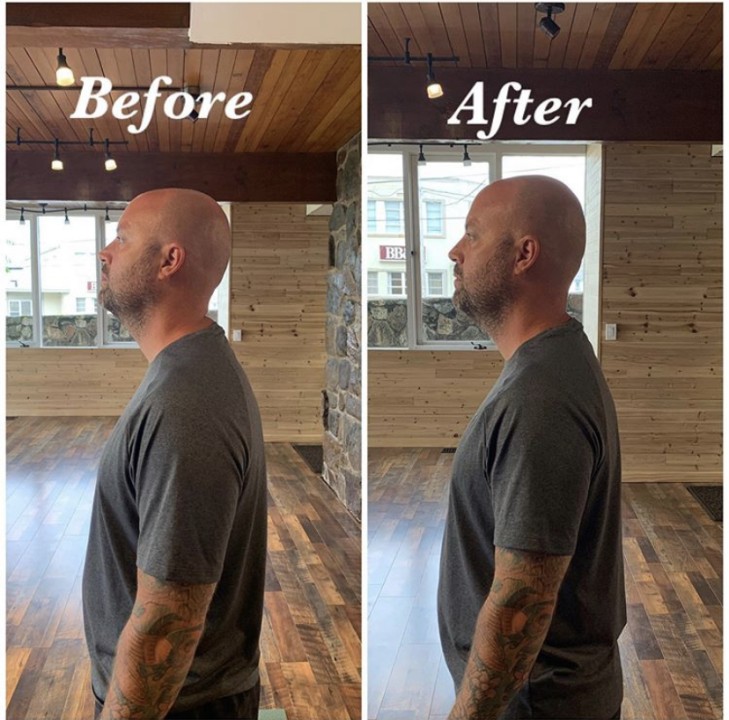If it isn’t you, I’m absolutely sure that you know a friend or loved one that has a forward head posture. You may have even gotten frustrated with someone for slouching. “Stand up taller, Mom.” “Johnny, stop slouching!” You know what I mean.
Watch a video on forward head posture and three simple exercises to improve it here.
Why does this happen?
Well, there’s a lot of reasons that could happen. Be patient and try to understand neurology and physiology.
First is the dysfunction in the trapezius muscle relative to the Sternocleidomastoid (SCM). Many times we don’t have enough tone in the trapezius muscle, and we have too much tone or chronic tension in the SCM, many times resulting from poor breathing mechanics over time (more on this later). We breathe 20 to 25,000 times a day. Therefore, a faulty breathing pattern can lead to increased tension in that specific muscle. So over time, this imbalance can lead to forward head posture (FHP).
It can also simply be the state of the nervous system. Posture is your story so it’s how you present yourself to the world. So when you walk into a room, do you walk in confident and tall, or do you walk in with your shoulders rounded in a more depressive type posture? It is a result of your thoughts, your emotions, your actions, and your daily activities.
As it relates to people that have asthma and COPD, there’s almost always going to be a direct correlation with some type of forward head posture. Lastly, scars can also have a significant impact on FHP. It doesn’t matter how old they are either or where they are, they can affect breathing, movement, and emotions.
Although there are a lot of factors that go into FHP, the great thing is that there are ways that you can improve it….and no, it is not just doing scapular retractions despite what everyone recommends.
What does it effect?
But before we jump into how to improve it, let’s touch on its effects on a whole host of things. It can reduce our breathing capacity and it can affect our vertebral artery which supplies blood to the head, and specifically areas around the cranial nerves that are involved in social engagement. So, again, it can affect our entire autonomic nervous system, and it can put us in a chronic state of stress. There are a lot of health implications from that.
Nobel Prize recipient, Dr. Roger Siri, a brain researcher, said that 90% of the stimulation of the brain is through movement of the spine. So just think about that if our spine mobility is impacted, so is our brain function. We know how important it is to maintain brain function, especially as we age.
Cranial Nerve Reprogramming
I did a video on three great exercises to improve forward head posture immediately. These exercises have a cumulative effect so the more you do, the greater the benefit. Of course, this does not replace good exercise, nutrition, and a positive mindset. Enjoy! I’d love to hear how they are going for you.
Watch the video on forward head posture and three simple exercises to improve it here.
Reach out for a 15-minute FREE discovery session to see how we can help you on your journey.
For more content, make sure to subscribe to our YouTube channel here.
Other things that may interest you:

